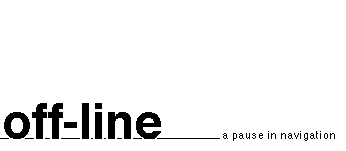Slowly, but steadily, a new way of thinking is gaining
momentum. People are feeling less comfortable with the myth
of growth for growth’s sake and more for the sake of more.
This isn’t just a mood in those parts of society and culture
that disagree with the prevailing economic system. It’s being
understood and discussed also by business analysts.
“Less and better,” some say, Or “less is better:” The two statements sound the same, but they are quite different.
Of course this doesn’t mean limiting desires to
“bare necessity”. People have every right to want
(and get) what they wish, including many things that could be
labeled as “not necessary”. Such as culture,
information, education – but also fun, amusement and
entertainment. Freedom of choice is a right that can not, in
any way, be reduced or hampered. What appears to some people
as irrelevant may be valuable to others.
That said – let’s look at the first of the two concepts:
“less and better”. In places, or parts of society,
emerging from poverty the initial desire is for “more
and more”. Abundance, per se, is a new and exciting
experience. Over time, that perception changes. People are no
longer interested in mere quantity, they want quality.
“More and better”.
“Affluent” societies are moving into a third
stage: “less and better”. This isn’t just to avoid
wasting money. People don’t have room in their homes for more
stuff that they don’t need. They don’t have the time to
fiddle with unnecessary gadgets or to manage too much clutter.
There was a perception of this trend when Christmas sales
were disappointing. But it isn’t just a temporary mood at a
time of uncertainty. There is a deeper evolution, with
long-term roots and effects. The exaggerated “more and
more” approach still appears to be dominant, but the
time has come to understand that there are other ways to
business success.
This isn’t the end of the “consumer economy.”
It’s a change of direction, that points to value, quality,
service, instead of more for the sake of more, or new for the
sake of new.
If that is true for all sorts of goods and services, it’s
also very relevant for information and communication. There
is too much of the same, or the irrelevant, that makes it
difficult to find what is really interesting.
Especially online the lack of quality and service is more
immediately perceivable – and instantly irritating. The
clutter is unbearable. With ever-growing spam and
never-ending invasive gimmicks, the rhetoric of abundance is
heading for suicide. This is an excellent opportunity for
anyone who can offer an alternative: a bit less and much
better. Considering the average quality of online offerings,
that isn’t difficult. And it can be very rewarding.
Internet data tell us
that the quantity is there and continues to grow. There is
an increasing, and largely unsatisfied, need for quality.
See also part two – Less is better



